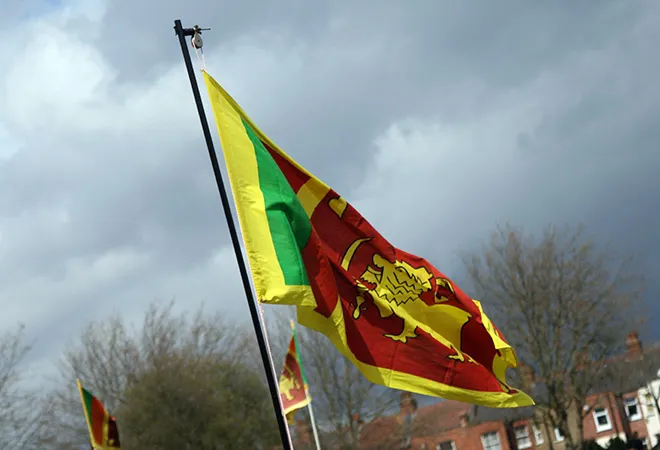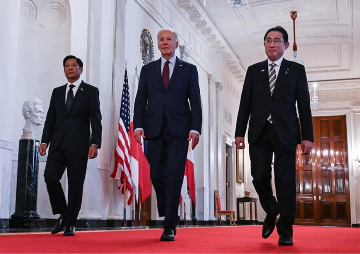
The continuing constitutional impasse in Sri Lanka, as is becoming increasingly clear, owes to the entrenched positions of individual political parties and the predictable behaviour of their respective leaderships. With the result, each one of them is playing to buy time from the other, until possibly the Supreme Court steps in again, when the pending challenge to President Maithripala Sirisena’s dissolution of Parliament comes up for hearing on 7 December.
The parliamentary sessions during the current interregnum owes to three-Judge Bench of the court, headed by Chief Justice Nalin Perera, granting an interim stay of the President’s Gazette notification on the dissolution of the House. With the court not clarifying if the House could transact any substantive business as Budget-presentation, debate and vote, or trust/no-trust motion and vote, it was left to Speaker Karu Jayasuriya to decide on the mode and method of business transaction, since.
It is here that the ‘Treasury Bench’ represented by Prime Minister Mahinda Rajapaksa and the other side identified with his predecessor Ranil Wickremesinghe are divided over the rules of procedure to be adopted. Given that the Supreme Court has not placed any restrictions on the Speaker, the Rajapaksa team argues that he should consult them as the ‘Government’ of the day in deciding on the daily agenda of the House, as has been the tradition.
According to them, this alleged violation of procedure by Speaker Jayasuriya, which alone is to blame for the unruly scenes when the House met on two separate days to vote on the no-trust motion against the Rajapaksa Government. Pending the court’s interim stay, they had told newsmen that only a Speaker-chaired party leaders’ meeting could decide on the timing of the no-trust debate and vote. In context, they also recall how Speaker Jayasuriya had held back by months’ debate and vote on no-trust motions against Ministers Ravi Karunanayake, Rajitha Senaratne and even Prime Minister Wickremesinghe.
As they quiz: “How come the Speaker accepts a no-trust motion against the Rajapaksa Government immediately after presentation, calls for a vote in just ten minutes — and on both occasions?” It is another matter none in the Rajapaksa camp has declared that they could defeat a no-trust vote if the Speaker followed the ‘procedures’, as declared by them. The fact remains that despite the Wickremesinghe team claiming to have the support of 122 or at times 128 members voting in favour of the no-trust motion against the Rajapaksa dispensation, none of them is able to declare that they themselves have the requisite 113-member backing for returning to power.
Differing preferences
Despite whatever they may say for the record, the Wickremesinghe-led UNP was not so sure of winning fresh parliamentary elections until Sirisena did them a favour by his twin constitutional crises. The first one involved the replacement of Wickremesinghe with Rajapaksa as Prime Minister. A fortnight later, he followed up on it with another dead-locked situation of ‘dissolving Parliament,’ which has since been stayed by the Supreme Court.
Though the UNP’s stars have lit up slightly more after the presidential actions, it remains to be seen if such sympathy would translate into a high number of ‘additional votes’ adding to the existing rank of ‘traditional UNP votes.’ In the present circumstances, the UNP would prefer twin polls to the presidency and Parliament, as they see Sirisena as having lost whatever charm he might have had for the voters, and two no ‘known Rajapaksa’ is qualified to contest the election. Where one of them as former Speaker Chamal Rajapaksa is qualified, he is disinterested in contesting the presidential polls.
Against the UNP, Rajapaksa preferred early polls, going by his steady 45 percent vote-share, and would have been comfortable as ‘interim/acting’ Prime Minister, which is what he is at present. Despite Speaker Jayasuriya declaring the passage of the no-trust motion against Rajapaksa on two different occasions, President Sirisena has refused to accept them. Without saying as much to the Opposition interlocutors, Sirisena seems wanting to wait until after the 7 December Supreme Court hearing before taking a stand. In the interim, he is said to be not unwilling to accept as Prime Minister any UNP leader other than Wickremesinghe.
Then, there are the decisive votes of the 15-member Tamil National Alliance (TNA) and the six-strong Janatha Vimukthi Peramuna (JVP). Together, they are opposed to Rajapaksa’s return. At one point, the TNA gave the impression that they preferred politics/policies to personalities, and was willing to support whoever gave the Tamils the best bargain in the form of a political solution to the ethnic issue.
Now, the JVP has reiterated its position it would oppose a Government headed by both Rajapaksa and the UNP (starting with Ranil, not excluding other leaders of the party). The TNA remains ambiguous at it just now, but then the Diaspora-driven sections of the Tamil social media has questioned the reason and justification for party MP, M.A. Sumanthiran, to move the no-trust motion against Rajapaksa in the place of an UNP counterpart, that too when they did not have the gumption to move any on ‘Tamil issues’ through the three-plus years of Wickremesinghe rule.
It is unclear if the JVP could be persuaded to back a non-Wickremesinghe, non-Rajapaksa Government, but if remains firm, it could imply that the party was favouring fresh elections like the latter. The TNA was a divided house, so to say, until the Sirisena-Rajapaksa team wooed one MP from the original total of 16, to join the Government as a junior minister. This however does not mean that all 15 will remain united, as could have been assumed on earlier occasions — especially if they were sure that Rajapaksa would not return to power, and they would not have to answer their constituents’ questions on ‘war crimes’ attending on the Rajapaksa presidency in the past.
Court holds the key
Should the President and Parliament fail to find a solution, the ball may go back to the Supreme Court, where a Rajapaksa spokesman had said last week, that they would seek a five-Judge Bench to hear the all-important constitutional case. The court may/may not clarify the intent behind granting interim stay to the President’s dissolution order. The order is different from the interim stay for the Election Commission not to proceed with fresh parliamentary polls, scheduled then for 5 January.
In the absence of precedents to the contrary, the top court may be asked to pass verdicts on the ‘sacking’ of Prime Minister Wickremesinghe, and then the ‘dissolution of Parliament.’ Before that it would have to hear all parties, including the President, the political stake-holders to the crisis, the petitioners, and possibly the Speaker, too. In a way, theirs would be a landmark verdict in the Sri Lankan context, a precedent, a reference-point and more. It could possibly do for the Executive Presidency, what political promises of ‘curtailment’ did not do, but then that question is still open, at least as of now.
The views expressed above belong to the author(s). ORF research and analyses now available on Telegram! Click here to access our curated content — blogs, longforms and interviews.




 PREV
PREV


